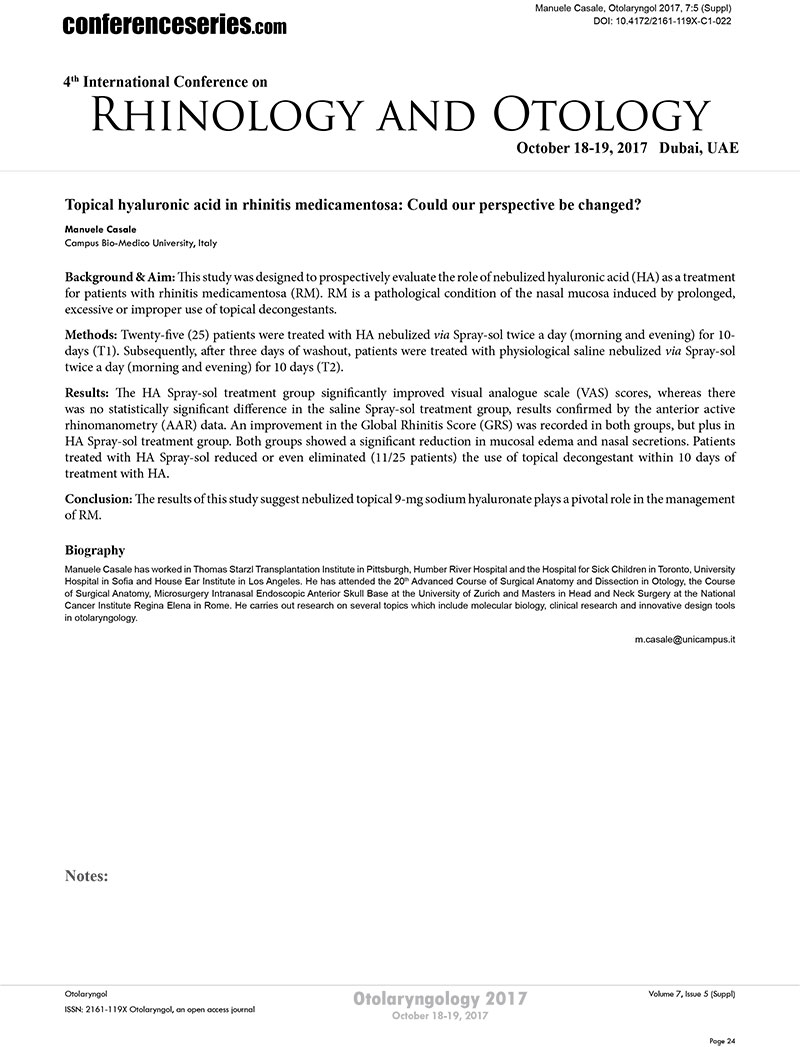Effects of Topical hyaluronic acid in rhinitis medicamentosa

Topical hyaluronic acid in rhinitis medicamentosa: Could our perspective be changed?
Article specifications
This Randomized Controlled Study was published in 2017 in Journal of biological regulators and homeostatic agents (IF 2015:1.469) by Italian specialist. This study was designed to prospectively evaluate the role of nebulized hyaluronic acid (HA) as a treatment for patients with rhinitis medicamentosa (RM). 25 patients were treated with HA nebulized via Spray-sol twice a day (morning and evening) for 10-days (T1). Subsequently, after three days of washout, patients were treated with physiological saline nebulized via Spray-sol twice a day (morning and evening) for 10 days (T2).
Results
The HA Spray-sol treatment group significantly improved visual analogue scale (VAS) scores, whereas there was no statistically significant difference in the saline Spray-sol treatment group, results concerned by the anterior active rhinomanometry (AAR) data. An improvement in the Global Rhinitis Score (GRS) was recorded in both groups, but plus in HA Spray-sol treatment group. Both groups showed a significant reduction in mucosal edema and nasal secretions. Patients treated with HA Spray-sol reduced or even eliminated (11/25 patients) the use of topical decongestant within 10 days of treatment with HA. The results of this study suggest nebulized topical 9-mg sodium hyaluronate plays a pivotal role in the management of RM.
Tags: Italy biological regulators and homeostatic agents Clinical trial 2017
